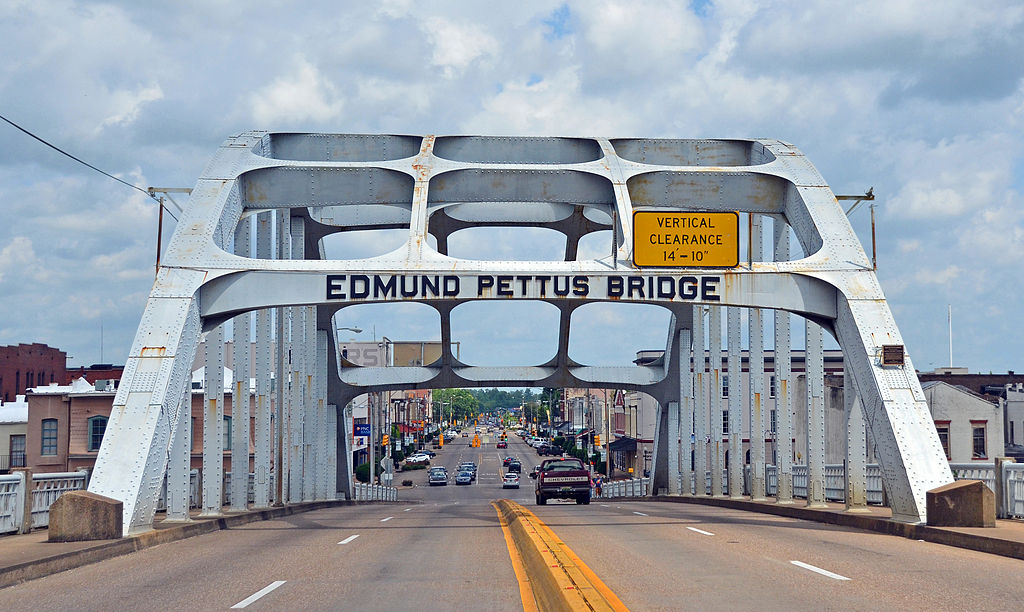
Associated Press

SELMA, Ala. (AP) — Throngs of people converged in the city of Selma, Alabama, for the annual re-enactment of a key event in the civil rights movement.
Sunday marks the 52nd anniversary of the march across the Edmund Pettus Bridge over the Alabama River in Selma. On March 7, 1965, African-Americans seeking voting rights launched a march across the bridge en route to Montgomery but were attacked by police. That violent episode became known as “Bloody Sunday.”
The march is credited with helping build momentum for passage of the landmark Voting Rights Act of 1965. Attendees included the Rev. Jesse Jackson, Congresswoman Terri Sewell, Alabama Secretary of State John Merrill and North Carolina NAACP President Dr. William Barber.
WFSA-TV (http://bit.ly/2lPWFDi ) reports that a number of Selma church services kicked off Bridge Crossing Jubilee events including at the historic Brown Chapel where speakers remembered the battle for African American voting rights and the role the Chapel played in that fight.
Merrill’s speech however upset some audience members. He told onlookers that the state has been working to create more opportunities for people to obtain photo identification and get registered to vote by going to various sites throughout the state.
“We want to make sure that every eligible U.S. citizen that is a resident of Alabama is registered to vote and has a photo ID so they can participate in the electoral process at they level that they want to participate,” Merrill said.
Multiple spectators called out in opposition several times of having a photo ID including in the voting process. Many walked out of the church service while Merrill was still talking including NAACP president Barber, according to WFSA.
“Standing on this historic ground, where people died for voting rights, we cannot accept this hypocrisy of voter suppression,” Barber said.
The service continued, despite the moments of tension, with Congresswoman Sewell calling for unity and activism and other leaders asking for respect and peace.
This year’s march re-enactment was planned despite a dispute over city fees that forced organizers to change plans for a festival-like event leading up to the bridge-crossing commemoration.
The city asked for thousands of dollars to cover the costs of police, fire and cleanup workers, but Sen. Hank Sanders, D-Selma, and other leaders of the event refused to pay. Instead, they moved a music festival to private property rather than holding it on a blocked city street as in past years.
Organizers of an annual Civil War re-enactment held in Selma canceled their event when presented with a similar bill from the city.
This year’s crowd for the bridge crossing was expected to be far smaller than the one in 2015, when then-President Barack Obama and his family led tens of thousands of marchers on the 50th anniversary weekend.



